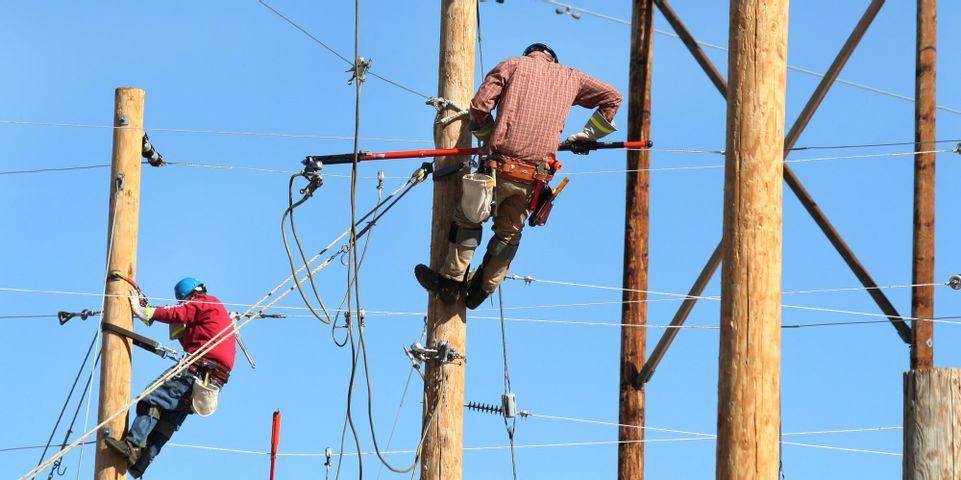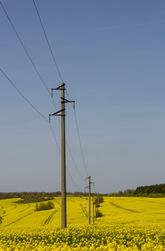
Across the united states, homes, businesses, and public facilities rely on utility poles to deliver power, and just as importantly, to keep the world connected through telecommunications services such as phone and internet. Wooden utility poles became prevalent in the mid-19th century, and their usage continues to grow due to the convenience of wood compared to alternative materials such as metal. Here is an overview of where these poles originated and where their journey takes them.
Understanding the Life Cycle of Utility Poles
How Are the Poles Made?
 Utility poles are made from three main types of wood: Douglas fir, western red cedar, and southern pine. These trees naturally grow tall and straight—though not all are shaped correctly for use as utility poles. The trees which are straight enough are usually marked before logging even begins. Once the bark has been removed, the trees are cut and shaped, then examined for weaknesses and irregularities and given a grade based on their quality. Finally, they’re treated with chemicals to discourage rot and pests. The solution isn’t only applied to the pole’s exterior, but it’s also infused into the material so that the naturally short-lived wood will last 70 years or more.
Utility poles are made from three main types of wood: Douglas fir, western red cedar, and southern pine. These trees naturally grow tall and straight—though not all are shaped correctly for use as utility poles. The trees which are straight enough are usually marked before logging even begins. Once the bark has been removed, the trees are cut and shaped, then examined for weaknesses and irregularities and given a grade based on their quality. Finally, they’re treated with chemicals to discourage rot and pests. The solution isn’t only applied to the pole’s exterior, but it’s also infused into the material so that the naturally short-lived wood will last 70 years or more.
What Compromises Them?
Due to the chemicals used to treat the wood, normal wear from the elements, as well as damage from rodents and pests, decreases. However, natural disasters such as earthquakes and hurricanes can still break them or knock them down. They’re sometimes hit by vehicles, which may damage them depending on the force of the impact. Finally, over time, even the best chemical treatments can't completely stop the process of wood rot. When a pole is knocked down or shows signs of weakening, it’s taken down and replaced.
If you need a utility pole replacement, the team at The Hole Works will provide efficient hole-drilling services. Catering to residents across Cattaraugus County, NY, for over 20 years, they provide construction equipment rentals, including drilling rigs, and also offer roadside assistance and hardware sales. They are a local company with talent, experience, and fair prices. To schedule your project, call (716) 676-3998 or visit them online to browse their hole drilling services.
About the Business
Have a question? Ask the experts!
Send your question

